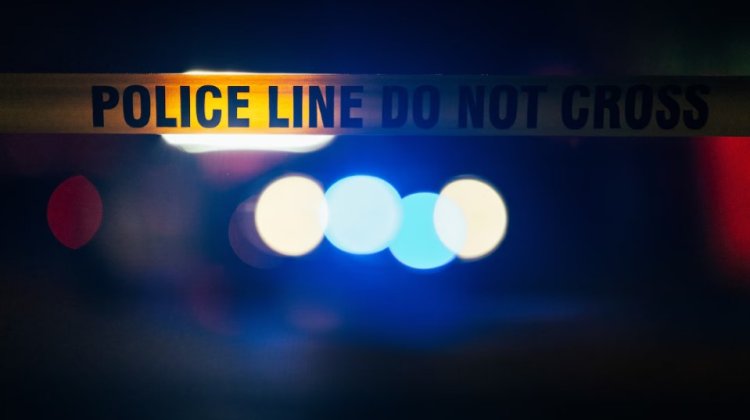Roy S. Johnson: Ending Deadly Violence Requires Trigger Pullers to Tire of Dying
The tragic answer is all too clear: Too many of us are shooting each other. Shooting our own. Shooting people we know. Shooting, and too often, killing those we know.

What are we doing? What are we doing to each other?
The tragic answer is all too clear: Too many of us are shooting each other. Shooting our own. Shooting people we know. Shooting, and too often, killing those we know.
Even more tragically, we’re also shooting and killing strangers.
This violence leaves behind a trail of pain that never heals. Broken families that never mend. Children deprived of a parent’s love, a void that can never be filled.
All of this over trivial matters. Over a disagreement. Over money. Over a dice game. Over ego. Over a romantic partner.
Over a drug deal gone wrong...
Over nothing worth dying for. Nothing worth the end. Nothing worth a life spent in fear of retaliation. Nothing worth a lifetime in the Alabama prison system, which might not be any safer than the streets left behind, and which ends almost any prospect of a productive life.
I am sickened by it all—and I’m sure you are, too.
The start of 2024 has been grim. In Birmingham, which saw a drop in homicides for the first time in five years in 2023, there were 75 homicides between January and June this year—a 15% increase from the same period last year. In Jefferson County, there were 98 homicides in the first six months of 2024, two more than in 2023.
As if that wasn’t bad enough, July started with a deadly streak: five homicides in the first five days. The fifth victim was 55-year-old Renard “Keith” West, described by his brother as a “big-hearted man” who struggled with personal issues but was harmless. Awakened early by noises outside, he stepped out to investigate and was shot dead.
And there are too many others like him. Likely even more by the time you read this column.
Birmingham isn’t alone in this crisis. Late last month, nine people were hit by gunfire in a mass shooting at a neighborhood party in Montgomery. On Mother’s Day, 64-year-old Gloria Crews was fatally shot in front of her grandchildren during a family gathering in her own backyard in Montgomery.
I’ve often written about crimes we perpetrate against ourselves. It’s never easy. Hard truths never are. Over two years ago, on Dr. Martin Luther King Day, I challenged us to stop the violence in honor of the slain leader. Sadly, the challenge was not accepted.
What are we doing? What is being done about it?
In recent years, Birmingham has launched numerous initiatives and partnerships to curb gun violence. Labeled “Common Ground,” these efforts include a conflict resolution curriculum in Birmingham City Schools, a hospital-based intervention program to guide those wounded out of violent environments, mental health services in schools to teach de-escalation strategies to students traumatized by violence, a juvenile re-entry program for youths engaged with the state Department of Youth Services, after-school education and personal services at 14 rec centers, a nine-week workforce training program in partnership with the National Training Institute for Healthcare Technicians, and a re-entry pilot program to reduce recidivism.
There are also several independent programs addressing violence and inspiring hope in young people and adults. These include The Surge Project, ZeroZero Foundation, Second-Chance Hiring Fairs hosted by the district attorney’s office, and Renew Birmingham.
Mayor Randall Woodfin recently said, “[W]e’ve got to make sure that in our city, there’s a greater appreciation for life, a greater appreciation for conflict resolution, a greater appreciation for de-escalating situations without pulling guns. This cannot continue to happen. We will not stand for it. This senseless violence just has to stop.”
There is hope in the national decline in homicides in large U.S. cities. Earlier this year, Boston, with a Black population of 28.6%, was lauded for its staggering 78% year-to-year drop in homicides through early July, with only four homicides over that period. Experts and city officials credit an array of efforts dating back to the 1990s, including partnerships between police and communities, hospital intervention, and school conflict resolution programs, as well as stricter gun laws than those in the gun-friendly South.
It’s clear that the solutions are out there. The challenge is in the execution and the willingness to change. We must come together to end this cycle of violence and heal our communities.







